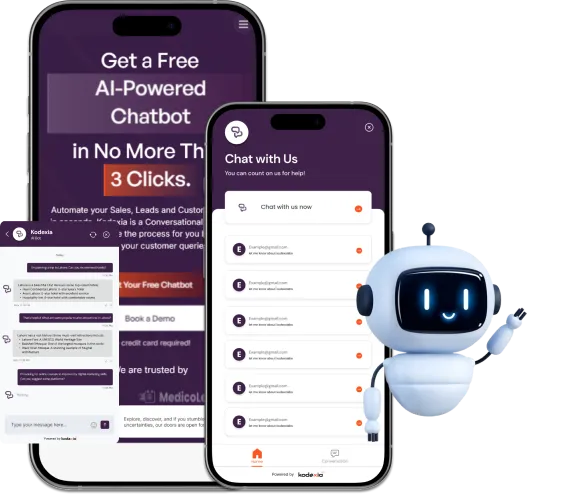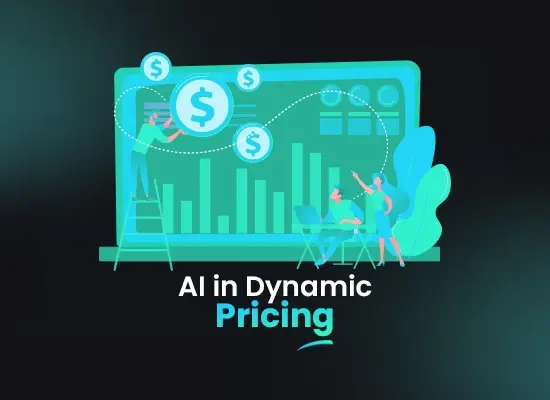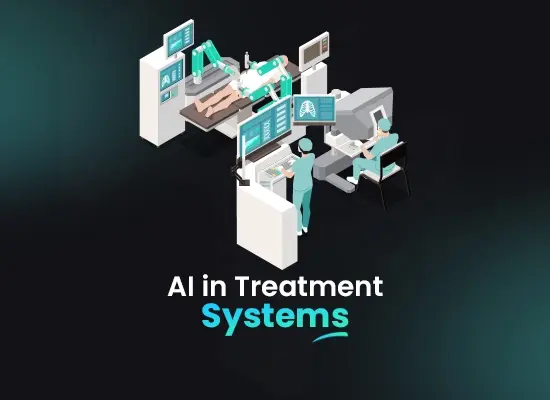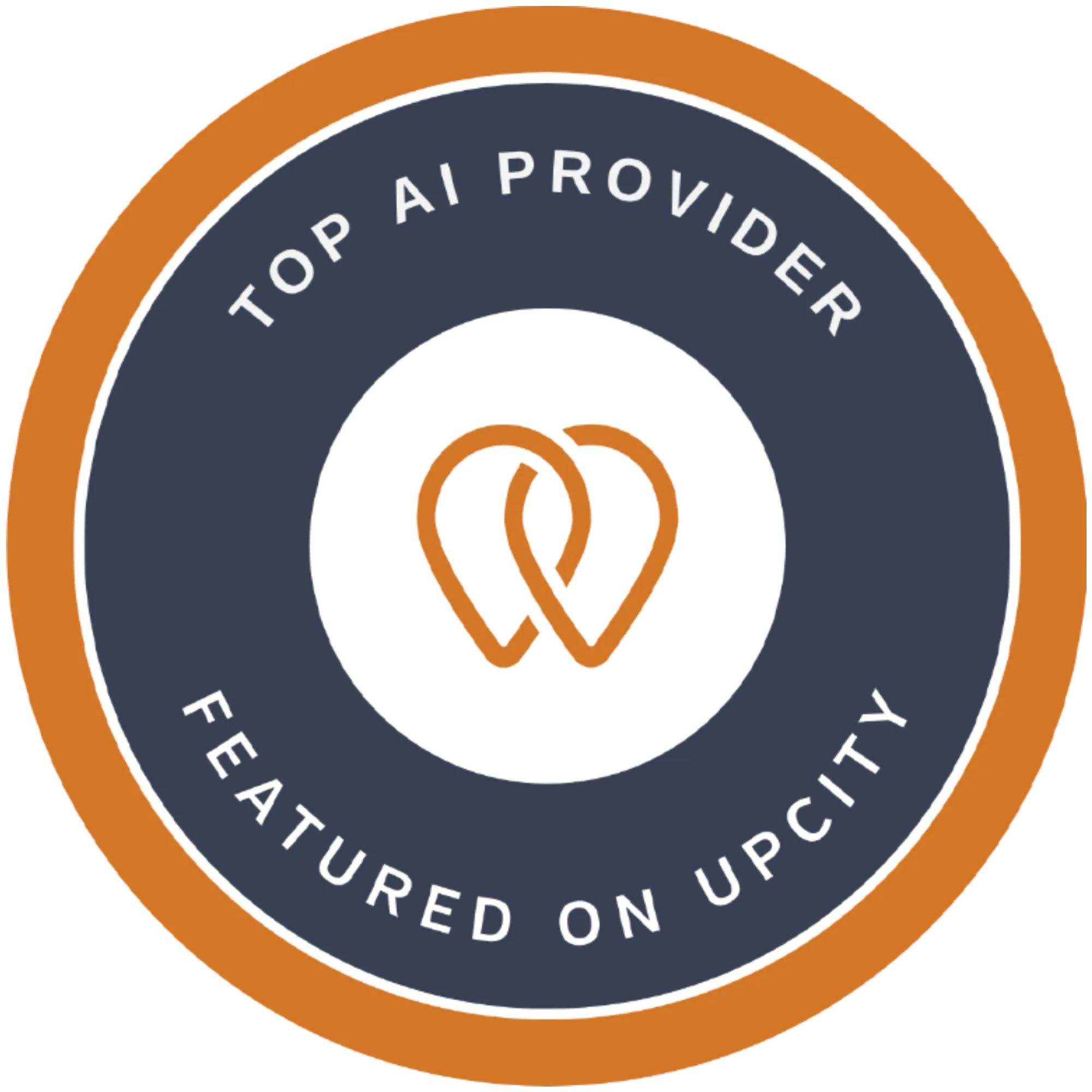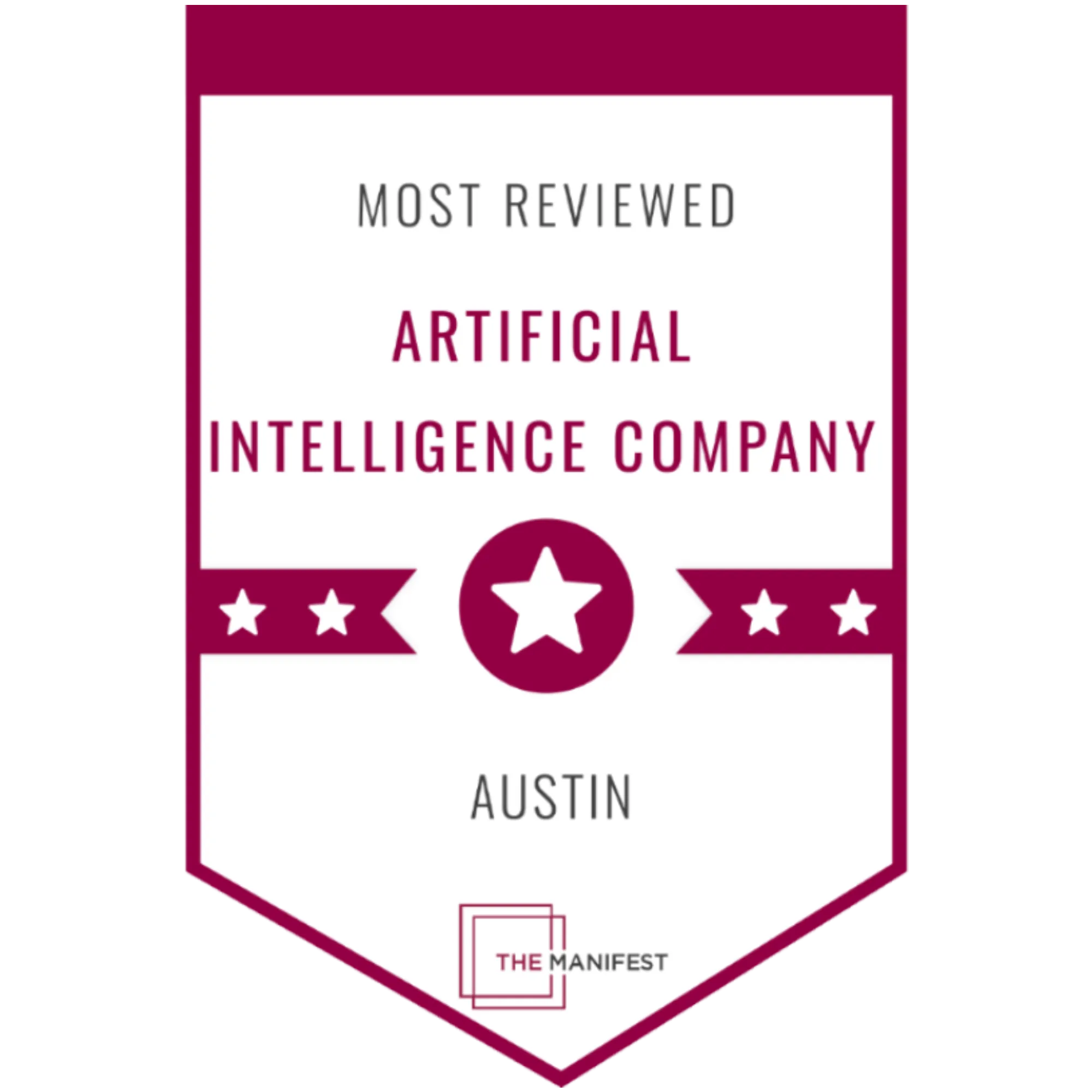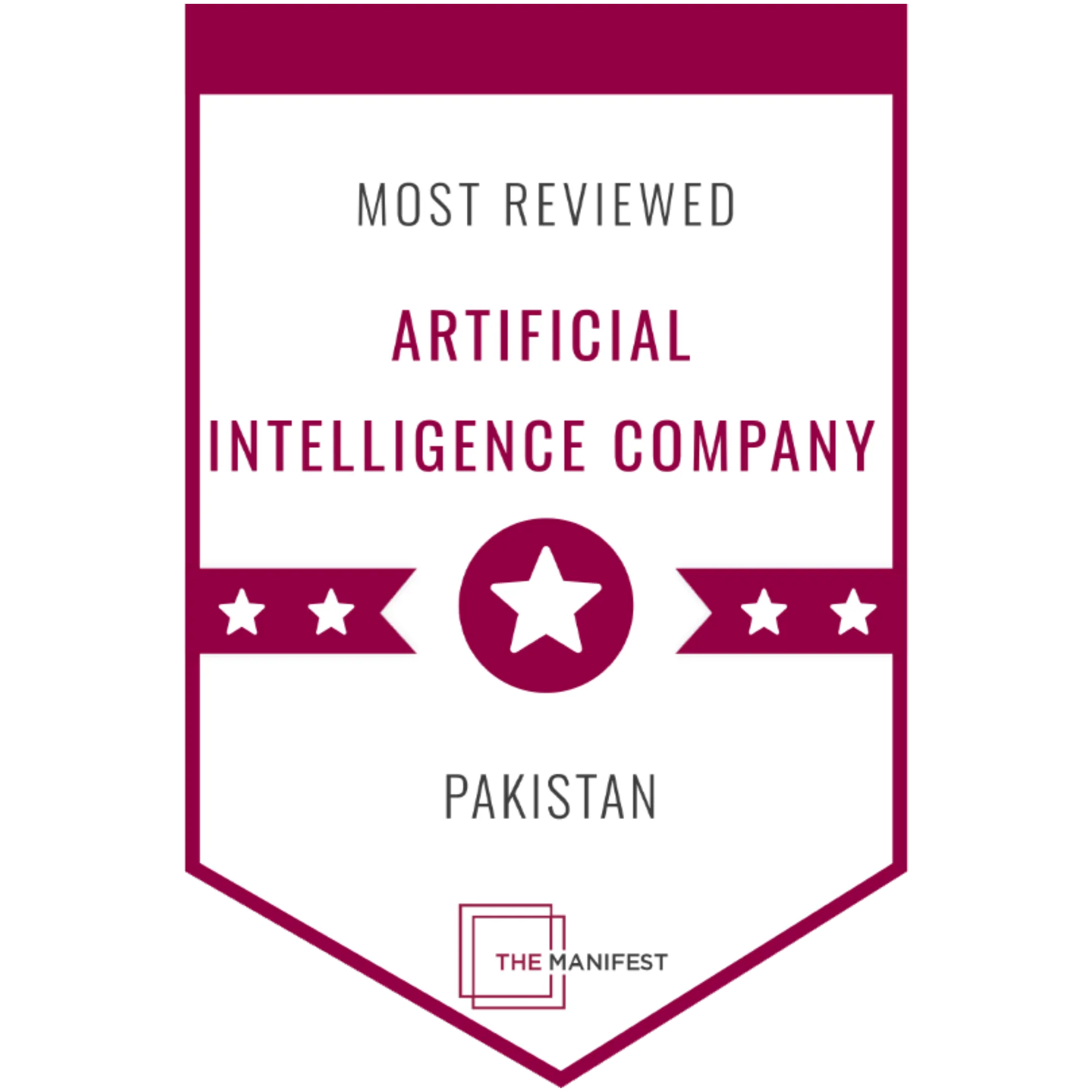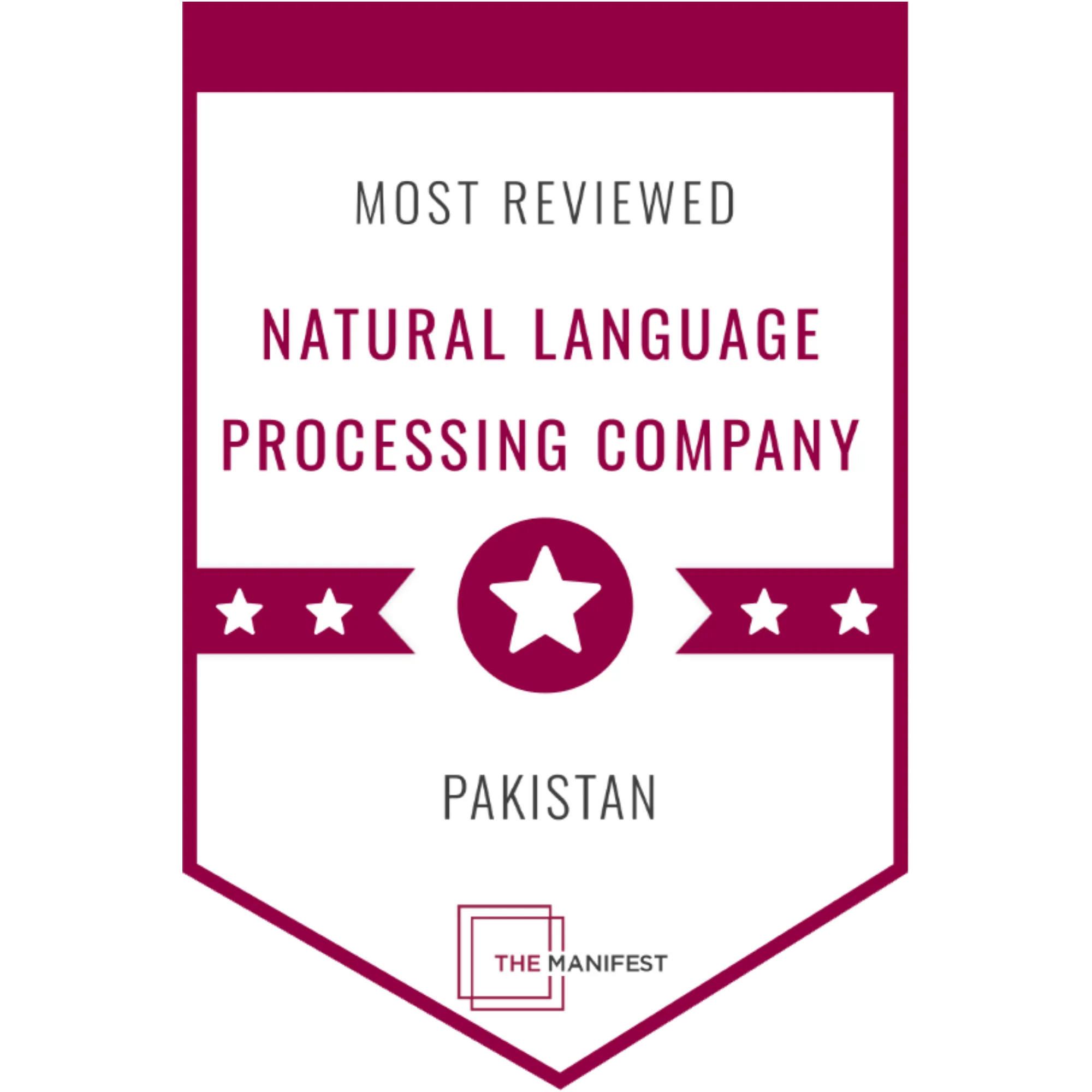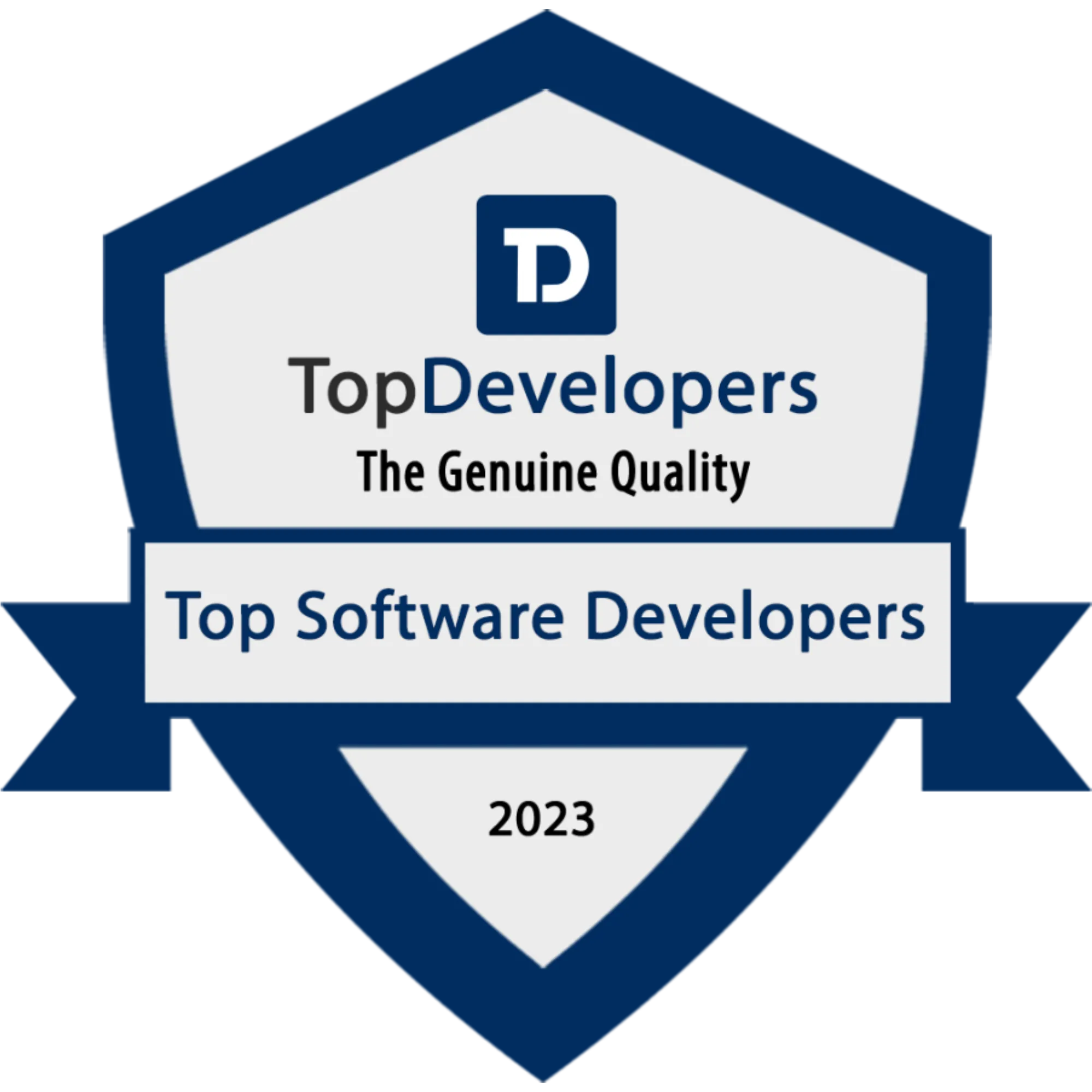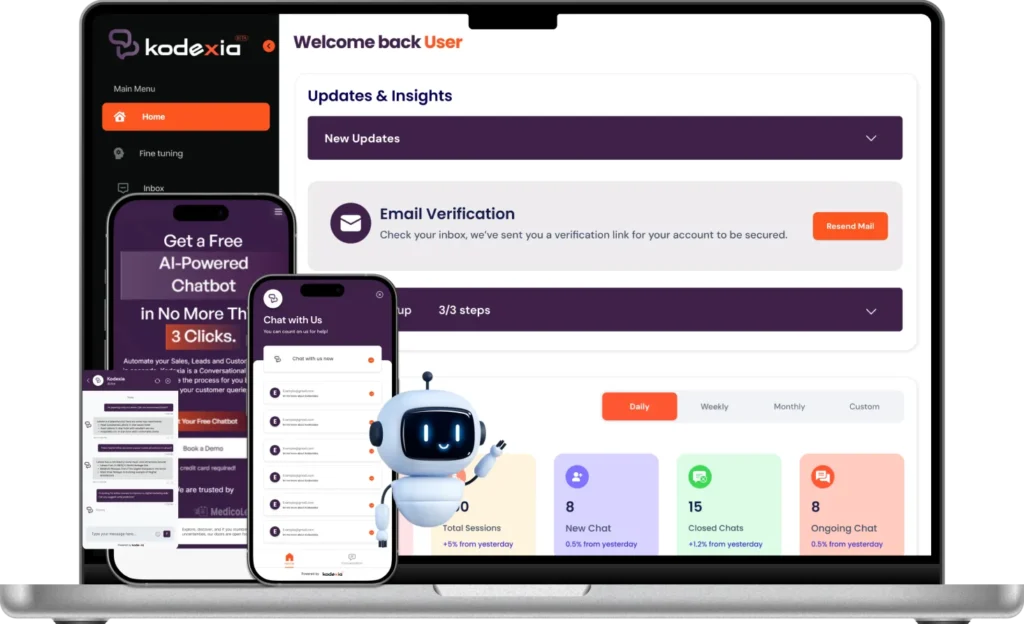AI in Genome Sequencing – Artificial Intelligence’s latest Trend Setter can Sequence Genome
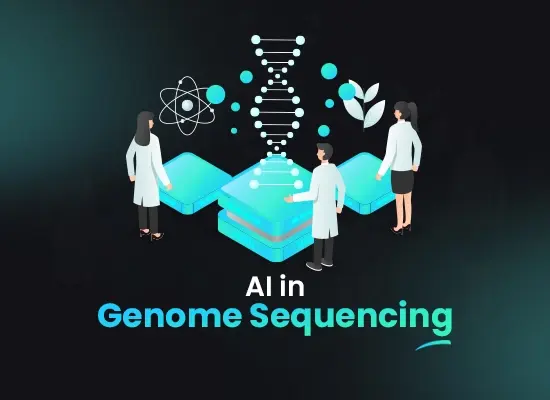
Contents
Genome sequencing has become a powerful tool in biology and medicine, but analysing the vast amount of data it generates can be challenging. Artificial intelligence (AI) is emerging as a game-changer in this field. By applying machine learning and deep learning algorithms, researchers are unlocking new possibilities for analysing genetic data, leading to breakthroughs in disease diagnosis, personalised medicine, and our understanding of human health.
What is Genome Sequencing?
Genome sequencing is a powerful technique that allows scientists to determine the exact order of nucleotides, the building blocks of DNA, in an organism’s genome. This essentially translates to reading the entire genetic instruction manual of a living being. Imagine having a blueprint for a complex machine, but instead of lines and symbols, it’s encoded with a specific sequence of A’s, C’s, T’s, and G’s. Sequencing in the genome cracks this code, revealing the unique genetic makeup of an organism.
The process of deciphering this vast amount of information is where AI comes into play. The raw data generated by sequencing in the genome is massive and complex. Here’s where AI in analysis, or specifically, genome analysis tools powered by AI, become crucial. These tools can rapidly analyse the sequence data, identify patterns, and even predict potential functions of different genes. This significantly speeds up the process of unlocking the secrets hidden within the genome.
The field of AI in life sciences is rapidly evolving, and sequencing in the genome is a prime example of its impactful applications. Automated sequencing platforms are constantly being developed, making the process faster and more efficient. Combined with the power of AI analysis, genome sequencing is transforming our understanding of biology and paving the way for advancements in medicine, agriculture, and even personalised healthcare.

What is Genome Sequencing?
Genome sequencing, the process of determining the complete DNA sequence of an organism, has become a cornerstone of life sciences research and medical diagnostics. However, the sheer volume of data generated by automated sequencing creates a bottleneck. This is where AI in analysis steps in.
Artificial Intelligence (AI), offers a powerful set of tools to revolutionise genome analysis. By leveraging machine learning and deep learning algorithms, AI development solutions can sift through massive datasets derived from sequencing in the genome, identifying patterns and relationships that might escape human analysis. These AI-powered genome analysis tools can analyse vast amounts of data much faster and more efficiently than traditional methods.
The impact of AI in life sciences is particularly profound in its application to sequencing in the genome. AI can be used to automate many aspects of the analysis pipeline, freeing up researchers to focus on interpreting the results and developing new therapies. For instance, AI can be used to:
- Identify genetic variants: AI algorithms can scan sequences for variations that might be associated with diseases or other traits.
- Predict gene function: AI can analyse the sequences of genes and their regulatory regions to predict their function and how they might interact with other genes.
- Classify diseases: AI can be used to classify diseases based on a patient’s genome sequence, leading to more personalised medicine.
Overall, AI in sequencing is transforming the field by enabling researchers to unlock the vast potential of this technology. As AI in analysis continues to develop, we can expect even more breakthroughs in our understanding of human health and disease.
What is the Role of AI in Analysis for Sequencing Genomes?
Genome sequencing, the process of determining the complete DNA sequence of an organism, has become a fundamental tool in life sciences research and medical diagnostics. However, the vast amount of data generated by automated sequencing can be overwhelming to analyse using traditional methods. This is where AI in analysis comes to the rescue. AI, or Artificial Intelligence, offers a powerful set of techniques that are transforming the field of genome analysis. Here are five key roles that AI in analysis plays in unlocking the secrets hidden within our genetic code:

Enhanced Accuracy and Error Correction:
AI algorithms can be trained to identify and correct errors that may occur during the automated sequencing process. This ensures that researchers are working with the most accurate data analytics possible, leading to more reliable results in their genome analysis tools.
Variant Detection and Prioritization:
AI can scan massive datasets and pinpoint specific variations within a genome. These variations, or mutations, can be linked to diseases, drug responses, or other traits. AI can prioritise these variants based on their potential significance, saving researchers valuable time and effort.
Assembly and Reconstruction:
Sequencing technologies typically generate short fragments of DNA. AI algorithms can be used to assemble these fragments into the complete genome sequence. This is a complex task, but AI’s ability to learn patterns and make connections is proving invaluable in this area.
Functional Annotation and Interpretation:
Once the genome sequence is assembled, AI can help to identify the functions of different genes and regulatory elements. This functional annotation allows researchers to understand how genetic variations might be affecting biological processes.
Personalized Medicine and Drug Discovery:
By analysing individual genomes, AI can help predict a person’s risk for developing certain diseases and identify potential drug targets. This personalised approach to medicine holds great promise for the future of healthcare.
In conclusion, AI in analysis is rapidly transforming the field of genome sequencing. From enhancing accuracy to providing deeper biological insights, these powerful tools are helping researchers unlock the potential of this revolutionary technology. As AI in life sciences continues to evolve, we can expect even more exciting discoveries in the years to come.
How is Automated Sequencing Beneficial for Healthcare?
Automated sequencing, the process of rapidly determining the order of nucleotides in a DNA or RNA molecule, has become a game-changer in healthcare. This technology, coupled with the power of AI (Artificial Intelligence) in analysis, is unlocking a new era of personalised medicine.
Traditionally, sequencing in the genome was a time-consuming and expensive process. However, advancements in automated sequencing have drastically reduced costs and processing times. This allows for faster and more widespread use of genome analysis tools, enabling healthcare professionals to delve deeper into an individual’s unique genetic makeup.
Here’s where AI in life sciences comes into play. The vast amount of data generated by automated sequencing can be overwhelming to analyse. AI algorithms are specifically designed to sift through this data, identifying patterns and mutations within an individual’s genome. These AI-powered tools can highlight potential risk factors for diseases, predict how a patient might respond to specific treatments, and even aid in the development of personalised therapies.
For instance, automated sequencing can be used to identify genetic mutations linked to various cancers. By analysing this data through data engineering services, doctors can not only diagnose cancer earlier but also determine the most effective course of treatment for each patient based on their specific genetic makeup. This personalised approach to cancer care can lead to better outcomes and improved patient survival rates.
Automated sequencing also holds immense potential for the field of pharmacogenomics. This branch of medicine studies how a person’s genes influence their response to medications. By analysing a patient’s genome with AI-powered tools, doctors can predict how they might metabolise certain drugs, allowing for the selection of the most effective medication with minimal side effects.
In conclusion, automated sequencing, along with AI in analysis, is revolutionising healthcare. This powerful combination allows for faster, more efficient, and more personalised medical care. As the technology continues to evolve, we can expect even greater advancements in disease diagnosis, treatment planning, and ultimately, improved patient outcomes.
What is the Role of Deep Learning in Genome Analysis Tools?
The field of genomics has been revolutionised by the advent of genome sequencing. This process of determining an organism’s complete DNA sequence unlocks a treasure trove of information about its biology and potential health risks. However, analysing these vast amounts of data generated by automated sequencing presents a significant challenge. This is where AI, specifically deep learning, comes into play.
Deep learning (DL) is a subfield of AI that utilises artificial neural networks to learn complex patterns from large datasets. In the context of genome analysis tools, deep learning acts as a powerful engine, sifting through the mountains of data produced by sequencing in the genome. By analysing these sequences, AI in analysis can identify patterns and relationships that might escape traditional methods. This allows researchers to gain deeper insights into gene function, disease predisposition, and other critical aspects of biology.
The role of deep learning in genome analysis tools is multifaceted. It can be used for variant calling, a process of identifying variations in an individual’s DNA compared to a reference genome. Deep learning algorithms can analyse these variations with high accuracy, aiding in the identification of genetic mutations associated with diseases. Additionally, AI in life sciences can be employed to predict gene expression, which refers to how much of a particular gene is turned into a protein. This information is crucial for understanding how genes function and how they might be involved in diseases.
Overall, deep learning is transforming genome analysis tools by enabling researchers to analyse complex genomic data with greater speed and accuracy. This powerful technology holds immense potential for personalised medicine, drug discovery, and a deeper understanding of human health and biology. As AI in analysis continues to evolve, we can expect even more groundbreaking discoveries in the field of genomics.
What is the Role of Deep Learning in Genome Analysis Tools?
Genome sequencing, the process of determining the complete DNA sequence of an organism, has revolutionised our understanding of biology and disease. However, traditional sequencing methods can be expensive, time-consuming, and prone to errors. This is where generative AI, a powerful subfield of artificial intelligence, is emerging as a game-changer.
Generative AI models are trained on vast amounts of existing genomic data. They learn the underlying patterns and relationships within these sequences, allowing them to generate entirely new, yet realistic, DNA sequences. This has several significant implications for sequencing in genome:
1. Improved Accuracy:
Generative AI development can be used to fill in gaps or correct errors in incomplete or low-quality sequencing data. By understanding the typical patterns of DNA sequences, the AI can statistically predict the most likely missing nucleotides, effectively reconstructing the original sequence with greater accuracy.
2. De Novo Genome Assembly:
Traditionally, genome assembly relies on a reference genome from a closely related species. However, generative AI can potentially assemble a genome entirely from scratch, without the need for a reference. This is particularly valuable for studying novel organisms or those with highly divergent genomes.
3. Targeted Sequencing:
Generative AI can design custom DNA probes that specifically target regions of interest within a genome. This allows researchers to focus their sequencing efforts on specific genes or regulatory elements, reducing time and cost while increasing the depth of analysis in those areas.
4. Simulating Genetic Variation:
Generative AI in healthcare can be used to create in-silico models of genomes with specific variations. This allows researchers to virtually explore the effects of mutations or genetic diversity on biological processes, aiding in drug discovery and personalised medicine.
While generative AI integration holds immense promise for sequencing in the genome, it’s important to acknowledge the ongoing challenges. The models require substantial amounts of high-quality training data, and interpreting the generated sequences requires expertise in both genomics and AI. Additionally, ensuring the ethical implications of AI-driven genome modification is crucial.
Overall, generative AI is poised to significantly enhance the field of genome sequencing. By improving accuracy, facilitating de novo assembly, and enabling targeted analysis, generative AI will accelerate our ability to unlock the secrets encoded within our DNA.
How can Machine Learning influence Automated Sequencing?
Automated genome sequencing has revolutionised our understanding of life, but analysing the vast amount of data it generates remains a challenge. This is where Machine Learning (ML) steps in, acting as a powerful tool to streamline and enhance the entire process. Here’s how ML is influencing automated genome sequencing:

1- Assembly and Quality Control:
ML algorithms can analyse raw sequencing data to identify and filter out errors. This includes recognizing adapter sequences used in the process and removing them, as well as correcting for sequencing biases that might skew the results. Additionally, ML can assist in assembling the fragmented sequences into a complete genome by identifying overlapping regions and piecing them together accurately.
2- Variant Calling and Annotation:
A crucial step in sequencing in the genome is identifying variations in the DNA sequence compared to a reference genome. ML can automate this process, flagging potential mutations and insertions/deletions with high accuracy. Furthermore, ML models can be trained on vast datasets of known genetic variations, allowing them to annotate the identified variants and predict their potential functional impact.
3- De Novo Genome Assembly:
For some organisms, a reference genome might not be available. AI and Machine Learning development can play a vital role in assembling a genome entirely from scratch (de novo assembly). By analysing the sequence patterns and identifying repetitive elements, ML algorithms can effectively reconstruct the complete genome sequence.
4- Functional Genomics and Gene Discovery:
Understanding how genetic variations influence gene expression and protein function is a significant goal. Here, ML can analyse the vast amount of data from gene expression studies and link it to the variations identified in the genome sequence. This can help researchers pinpoint genes associated with specific diseases or traits.
5- Clinical Applications and Personalized Medicine:
By analysing a patient’s genome sequence and leveraging ML models trained on large patient datasets, healthcare professionals can gain insights into disease susceptibility, potential drug responses, and personalised treatment plans. This holds immense potential for advancing precision medicine.
In conclusion, Machine Learning is rapidly transforming the field of automated sequencing in the genome. By automating complex tasks, improving accuracy, and facilitating the interpretation of vast datasets, Machine Learning development is paving the way for a deeper understanding of human health, disease, and the very essence of life itself.
What is the Role of MLOps in Genome Analysis Tools?
Genome analysis has become a cornerstone of modern biology, unlocking a wealth of information about diseases, genetic traits, and even human evolution. But analysing this vast amount of genetic data requires sophisticated tools, and that’s where machine learning (ML) steps in. ML algorithms can identify patterns, classify sequences, and predict functions within genomes with remarkable accuracy.
However, developing an ML model is just the first step. Here’s where Machine Learning Operations (MLOps) comes into play. MLOps, short for Machine Learning Operations, is a set of practices designed to automate and manage the entire lifecycle of an ML model. In the realm of genome analysis tools, MLOps plays a critical role in ensuring these tools are reliable, efficient, and deliver consistent results. Let’s delve deeper into the specific functionalities of MLOps within genome analysis tools:
Streamlining Development and Deployment:
MLOps automates tasks like data preparation, model training, and deployment. This frees up researchers from repetitive tasks, allowing them to focus on refining the model and interpreting the results. Additionally, MLOps ensures models are deployed consistently across different environments, minimising the risk of errors.
Maintaining Model Performance:
Genomes are constantly evolving, and ML models need to adapt accordingly. MLOps facilitates continuous monitoring of model performance. It can detect performance degradation and trigger retraining with new data, ensuring the tool remains accurate over time.
In conclusion, MLOps acts as the silent partner behind powerful genome analysis tools. By streamlining development, maintaining performance, and ensuring scalability, MLOps empowers researchers to unlock the full potential of genomic data, leading to breakthroughs in healthcare, personalised medicine, and our understanding of life itself.

How can Kodexo Labs Help Businesses Acquire Help for AI in Life Sciences?
The life sciences industry is undergoing a massive transformation driven by artificial intelligence (AI). From drug discovery and development to clinical trials and healthcare delivery, AI is revolutionising how businesses operate. However, implementing AI solutions can be complex and require specialised expertise. This is where Kodexo Labs comes in.
Kodexo Labs, an AI software development company is a company that specialises in helping life sciences businesses acquire the help they need to leverage AI effectively. They understand the unique challenges of this industry and have a team of experts with experience in both AI and life sciences. Here are six key ways Kodexo Labs can assist businesses in acquiring help for AI in life sciences:

1- Identifying AI Needs:
Kodexo Labs can help businesses assess their current needs and identify areas where AI can have the most significant impact. They can work with stakeholders across the organisation to understand their challenges and goals.
2- Developing an AI Strategy:
Once the needs are identified, Kodexo Labs can help businesses develop a comprehensive AI strategy. This strategy will outline the specific AI solutions that will be implemented, the resources required, and a timeline for execution.
3- Finding the Right AI Talent:
One of the biggest challenges for businesses is finding qualified AI talent. Kodexo Labs can help businesses source and recruit the data scientists, engineers, and other specialists needed to build and implement AI solutions.
4- Building Custom AI Solutions:
If a business needs a custom product development or an AI solution, Kodexo Labs can help develop it. Their team of experts has experience in building a wide range of AI solutions for the life sciences industry.
5- Integrating AI with Existing Systems:
AI solutions need to be integrated with existing IT systems to be effective. Kodexo Labs can help businesses with this critical step, ensuring that the new AI solution works seamlessly with the existing infrastructure.
6- Providing Ongoing Support:
Implementing AI is an ongoing process. Kodexo Labs can provide businesses with the ongoing support they need to maintain and update their AI solutions over time.
By leveraging these six key services, Kodexo Labs can help life sciences businesses acquire the help they need to succeed in the age of AI.


